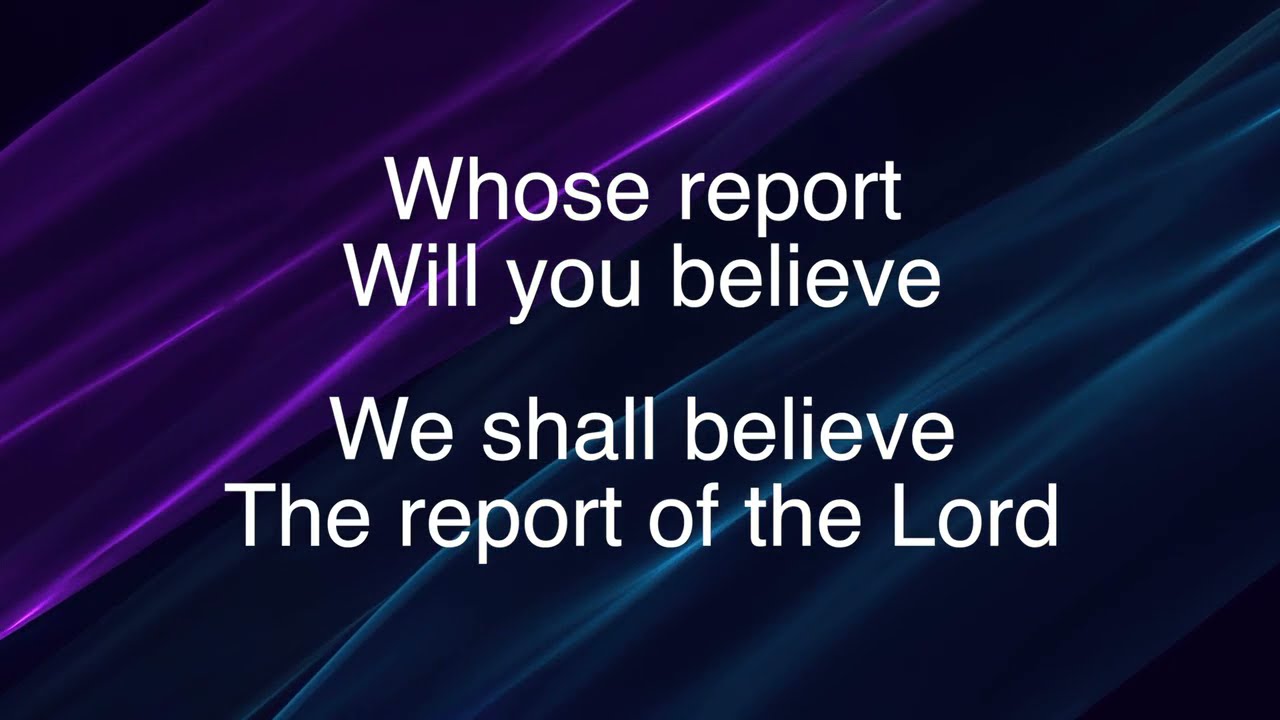Are you facing a difficult situation and feeling overwhelmed by conflicting opinions and reports? In times of uncertainty, it’s crucial to anchor ourselves in truth and rely on a reliable source of guidance. In this blog post, we’ll delve into the powerful message of the Bible scripture “Whose report will you believe?” and explore the profound implications of choosing faith over fear.
By reflecting on this scripture, we have the opportunity to shift our perspective and renew our trust in God’s promises. As we navigate through life’s challenges, understanding whose report we choose to believe can bring clarity, peace, and unwavering confidence in the midst of chaos. Join us on this transformative journey as we uncover the timeless wisdom encapsulated in this scripture and discover the limitless potential of embracing faith over doubt.
Believing God’s Word: Whose Report Will You Trust?
Isaiah 53:1 opens with the question, “Whose report will you believe?” This powerful verse challenges believers to consider whose testimony they will trust in the face of adversity and doubt. The context of this scripture is the prophecy of the suffering servant, a passage that is often interpreted as referring to Jesus Christ. In this passage, the prophet Isaiah foretells the coming of a figure who will bear the sins of humanity and bring about salvation through his sacrifice.
As we reflect on this question posed in Isaiah 53:1, we are reminded of the ongoing choice we face as believers to either trust in the promises and faithfulness of God or to place our confidence in the circumstances and opinions of the world. It is a call to anchor ourselves in the unchanging truth of God’s word, even when faced with challenges, uncertainties, and opposition.
Throughout the Bible, we encounter numerous accounts of individuals who had to decide whose report to believe. From the doubting Israelites in the wilderness to the courageous faith of David facing Goliath, the scriptures present us with examples of the consequences of choosing to either trust in God’s promises or give in to fear and doubt.
Ultimately, the question posed in Isaiah 53:1 is not just a historical or rhetorical inquiry—it is a personal and spiritual challenge for each one of us. In our daily lives, we are constantly bombarded with conflicting messages, opinions, and expectations. The world may try to persuade us to trust in material wealth, human wisdom, or societal approval, but the word of God stands as an unwavering beacon of truth and hope.
As we navigate the complexities of life and faith, let us heed the prophetic question of Isaiah 53:1 and choose to believe in the good report of God’s promises. Let us anchor our hearts in the certainty of His love, grace, and sovereignty, knowing that His word is a steadfast foundation in the midst of uncertainty and turmoil. So, whose report will you believe?
What Scripture says whose report will you believe?
In the context of the Bible, the Scripture that says “Whose report will you believe?” can be found in Isaiah 53:1: “Who has believed our message and to whom has the arm of the Lord been revealed?” This verse challenges us to consider whose report we will ultimately trust and have faith in.
What does Jeremiah 17 14 says?
Jeremiah 17:14 says, “Heal me, O Lord, and I shall be healed; save me, and I shall be saved, for you are my praise.” This verse is a plea for healing and salvation from God. The use of the word “praise” emphasizes the trust and reliance on God’s power for deliverance.
Whose testimony shall we believe?
In the context of the Bible, whose testimony shall we believe? This question is central to matters of faith and belief. Ultimately, as Christians, we believe in the word of God as revealed in the scripture. The Bible itself declares in 1 John 5:9, “If we receive the witness of men, the witness of God is greater.” Therefore, our faith and trust should be in the testimony of God Himself through His word.
What is the meaning of Isaiah 53 5?
In Isaiah 53:5, it says, “But he was pierced for our transgressions, he was crushed for our iniquities; the punishment that brought us peace was on him, and by his wounds we are healed.” This verse is a prophecy about Jesus Christ and is often interpreted as referring to his sacrificial death on the cross for the sins of humanity. The key message is that through his sacrifice and suffering, we can receive forgiveness, peace, and healing.

